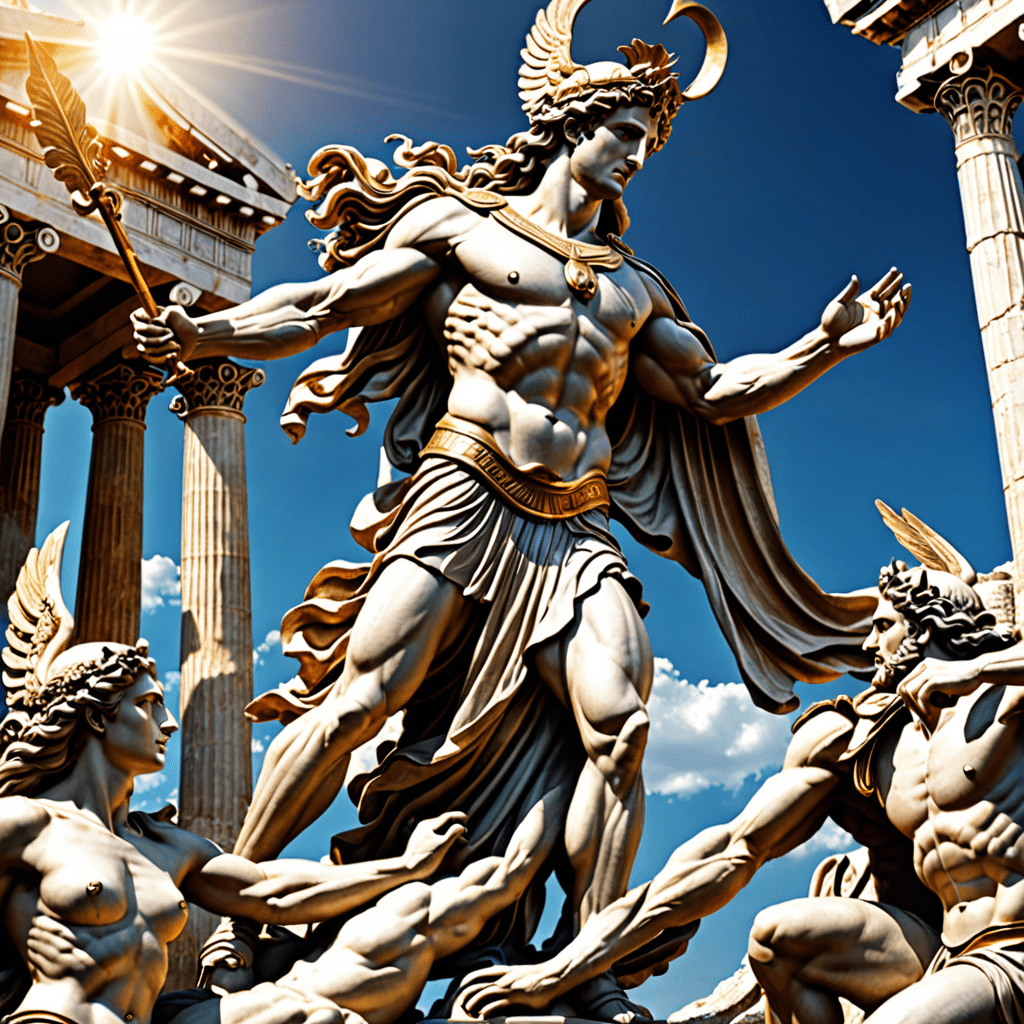The Feathered Serpent and the Power of Prophecy: Quetzalcoatl’s Role in Predicting the Future
I. Introduction
Quetzalcoatl, often referred to as the Feathered Serpent, is one of the most significant deities in Mesoamerican mythology, particularly among the Aztecs and other ancient civilizations of Mexico. He embodies a complex blend of attributes, representing both a divine being and a cultural hero. The significance of prophecy in ancient civilizations cannot be understated; it served as a guiding force that shaped societal norms, governance, and collective identity. This article aims to explore Quetzalcoatl’s prophetic role and the broader implications of prophecy in Mesoamerican cultures.
II. The Mythology of Quetzalcoatl
The origins of the Feathered Serpent myth are rich and varied, with roots tracing back to ancient cultures such as the Olmecs and the Teotihuacans. Over centuries, Quetzalcoatl evolved into a symbol of life, knowledge, and death. His mythology encompasses various narratives, including his creation of humanity and the introduction of agriculture.
In Aztec society, Quetzalcoatl held immense cultural significance. He was revered not only as a deity of wind and rain but also as a patron of craftsmen and the arts. His myths often reflected the duality of existence, embodying both creation and destruction.
When comparing Quetzalcoatl to other deities in the Mesoamerican pantheon, such as Tezcatlipoca and Huitzilopochtli, one can observe distinct differences in their roles and representations. While Tezcatlipoca represents chaos and conflict, Quetzalcoatl symbolizes harmony and enlightenment.
III. Quetzalcoatl’s Attributes and Symbolism
The Feathered Serpent is a powerful representation of duality, symbolizing both earth and sky. This duality is reflected in his imagery; the feathers represent the sky, while the serpent signifies the earth. This connection underscores the belief in the interdependence of all life forms.
Quetzalcoatl is associated with several key attributes:
- Wisdom: As a deity of knowledge, he is often portrayed as a teacher who imparts wisdom to humanity.
- Fertility: Quetzalcoatl is linked with the growth of crops and the fertility of the land.
- Creation: He plays a crucial role in the creation myths, often credited with the formation of the world and humanity.
As a teacher and civilizer, Quetzalcoatl is depicted as guiding people towards moral and ethical living, emphasizing the importance of learning and culture.
IV. The Concept of Prophecy in Mesoamerican Culture
In Mesoamerican cultures, prophecy was a vital aspect of spiritual and societal life. It was intertwined with the understanding of time and the cyclical nature of existence. Prophecies were often seen as divine messages that could foretell future events, guiding individuals and communities in their decisions.
Priests and shamans played a crucial role in interpreting these prophecies. Their insights were deemed essential for understanding the will of the gods and navigating societal challenges. The relationship between prophecy and societal events was profound, as prophecies were often linked to agricultural cycles, warfare, and political changes.
V. Quetzalcoatl’s Prophecies and Their Implications
Several notable prophecies are attributed to Quetzalcoatl, each carrying significant implications for the societies that revered him. Some of these prophecies included:
- The promise of a future era of peace and prosperity.
- The prediction of the arrival of a significant figure who would bring about transformation.
- The prophecy concerning the cyclical nature of time and the return of gods.
Historical events linked to these prophecies often reflected the anxieties and aspirations of the people. For instance, during times of drought or famine, references to Quetzalcoatl’s prophecies would surge, as people sought reassurance and hope for better times.
The impact of these prophecies on Aztec society was profound, influencing governance, religious practices, and social structures. Leaders often invoked Quetzalcoatl’s name to legitimize their rule, presenting themselves as chosen by the divine.
VI. Quetzalcoatl and the Arrival of the Spanish Conquistadors
The arrival of Spanish conquistadors in the early 16th century coincided with a significant prophecy concerning the return of Quetzalcoatl. This prophecy suggested that he would return to reclaim his rightful place among the people, leading to significant misinterpretations during the conquest.
The Spaniards, notably Hernán Cortés, were mistakenly perceived by some Aztecs as the embodiment of this prophecy. The consequences of these misinterpretations were catastrophic, as they led to a complex interplay of beliefs and actions that ultimately facilitated the conquest of the Aztec Empire.
Prophecy played a crucial role in shaping the narrative of this conquest, as it intertwined the destinies of the Aztecs and the Europeans in a profound historical moment.
VII. Legacy of Quetzalcoatl’s Prophecies in Modern Times
The legacy of Quetzalcoatl’s prophecies continues to influence contemporary interpretations of Mesoamerican history. Modern scholars and enthusiasts often revisit these narratives to better understand the cultural significance of prophecy in ancient times.
Quetzalcoatl has also found a prominent place in popular culture and media. He is depicted in various forms, from literature and film to art and music, reflecting the enduring fascination with his story and the broader themes of prophecy.
The relevance of prophecy today can be seen in various contexts, from political discourse to personal beliefs, illustrating humanity’s ongoing quest for understanding the future.
VIII. Conclusion
In summary, Quetzalcoatl’s role as a prophetic figure in Mesoamerican mythology reveals the intricate relationship between belief, culture, and history. His prophecies not only shaped the societies that revered him but also offer valuable insights into the human condition and our understanding of fate.
Reflecting on the significance of prophecy helps us appreciate the complexities of ancient cultures and their worldview. Quetzalcoatl’s enduring legacy serves as a reminder of the power of mythology and the ways in which it can influence generations, shaping narratives and identities that resonate even today.



